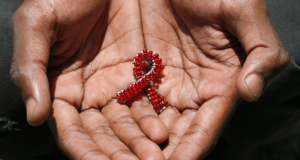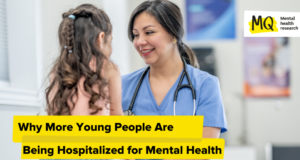
Anxiety is a common yet often overlooked mental health concern during pregnancy. According to recent studies, approximately one in five pregnant women experience at least one type of anxiety disorder. While anxiety during pregnancy is often overlooked as a “normal” aspect of pregnancy, anxiety during pregnancy is a predictor of postpartum depression. Notably, the impact of anxiety disorders during pregnancy extends beyond maternal well-being. Research has shown that anxiety symptoms during pregnancy are associated with a significant increase in adverse perinatal outcomes. These findings underscore the importance of not only screening for anxiety symptoms during pregnancy but employing effective strategies to treat anxiety.
In 2015, the American College of Obstetricians and Gynecologists issued a committee opinion recommending that clinicians screen patients at least once during the perinatal period for depression and anxiety symptoms. Noting that screening alone cannot improve clinical outcomes, the ACOG opinion statement says that it “must be coupled with appropriate follow-up and treatment when indicated,” and – most critically – adds that clinical staff in the practice “should be prepared to initiate medical therapy, refer patients to appropriate health resources when indicated, or both.” The latter recommendation is followed by the statement that “systems should be in place to ensure follow-up for diagnosis and treatment.”
Developing Effective and Scalable Interventions
While there are effective treatments for perinatal anxiety, including cognitive behavioral therapy (CBT) and mindfulness-based interventions, it is often difficult to find providers that are able to provide these specialized treatments in a timely manner. Thus, there has been significant interest in developing interventions that are effective and can be available to larger groups of individuals with perinatal mood and anxiety disorders. One such intervention is the Happy Mother, Healthy Baby intervention (HMHB), which is based on the principles of cognitive behavioral therapy.
The intervention offers evidence-based elements, including mood monitoring, cognitive restructuring, behavior activation, problem solving, and improving family and social suppport. Participants learn to identify (and ultimately replace) unhealthy patterns of thinking and behavior. The intervention uses culturally appropriate examples of healthy activities.
Most importantly, this intervention is delivered by non-specialist providers. No prior mental health experience is necessary; however, HMHB providers work under the supervision of specialists with CBT experience.
The Healthy Mother-Healthy Baby Program Significantly Improves Outcomes
In a large study, researchers evaluated the effectiveness of the HMHB intervention on preventing postpartum mood and disorders. This study was a randomized controlled trial conducted in Pakistan and recruited women prior to 22 weeks of gestation who presented with at least mild anxiety but without clinical depression. Participants were randomized to either the Happy Mother–Healthy Baby program (n = 380), consisting of six weekly one-on-one intervention sessions delivered by non-specialist providers, or to enhanced usual care (n = 375).
The results were pretty spectacular:
- Women receiving the HMHB intervention experienced an 81% lower risk of a postpartum major depressive episode (adjusted OR?=?0.19, 95% CI 0.13–0.28), compared to those receiving usual care.
- Women receiving the HMHB intervention experienced a 74% lower risk of moderate-to-severe anxiety symptoms (aOR?=?0.26, 95% CI 0.17–0.40), compared to those receiving usual care.
- Overall, 12% of women in the intervention group developed MDE at 6 weeks postpartum, versus 41% in the control group.
Impact on Birth Outcomes: The researcher team also examined the impact of the HMHB on birth outcomes, including low birthweight (LBW), preterm birth (PTB), and small-for-gestational age (SGA) birth. Although they did not find a difference between and the intervention and control group in the preliminary analysis, the researcher did observe that among completers who received 5 or more (out of 6) HMHB sessions, the odds of LBW and SGA were reduced by 39% and 32%, respectively (aOR = 0.61, 95% CI 0.43-0.87, p < 0.01; aOR = 0.68, 95% CI 0.53-0.89, p < 0.01). The significant LBW and SGA results among the intervention completers suggest that the program may be effective when a sufficient dose is received.
Impact on Breastfeeding Outcomes: Among those who completed all six HMHB sessions, the HMHB program increased the likelihood of early breastfeeding (OR1.69, 95% CI:1.12-2.54) and recent breastfeeding (OR 2.05, 95% CI:1.10-3.81). The impact was more marginal when examining women who did not receive all six sessions.
Mediation Analysis: In another study, the team sought to determine what components of the intervention were responsible for the reduction in depression and anxiety. The analysis found that improvements in social support and reduced pregnancy hassles were most strongly associated with reductions in anxiety, while only social support emerged as a significant mediator for depression outcomes.
Next Steps
This large study demonstrates that in a group of pregnant women with at least mild anxiety, a 6-week intervention using CBT principles can reduce risk for postpartum depression and anxiety by about 80%. This alone is a remarkable finding; however, it is even more impressive given that this is a relatively simple intervention that can be delivered by a non-specialist provider.
The study is also important because it clearly demonstrates that managing anxiety during pregnancy can have long-lasting effects. We have long known that anxiety during pregnancy is a risk factor for postpartum depression and that postpartum depression often co-occurs with anxiety. Not only does this intervention improve maternal well-being in the short run, its benefits persist beyond pregnancy and provide protection against postpartum anxiety and depression.
The HMHB program was developed by researchers in a low-resource country and was designed specifically to reduce cost and to minimize the need for specialized providers. Although the United States is technically a high-resource country, we are again and again finding that women with perinatal mood and anxiety disorders struggle to access effective, affordable treatment. The HMHB’s reliance on non-specialist providers would allow us to rapidly deploy a larger workforce
While we need to test this type of intervention in more diverse populations in the United States and elsewhere, and must make culturally sensitive adaptations to suit different populations, this is a promising effective and scalable intervention that not only addresses anxiety symptoms during pregnancy but is effective in reducing the risk of postpartum depression and anxiety.
Ruta Nonacs, MD PhD
References
Surkan PJ, Malik A, Perin J, Atif N, Rowther A, Zaidi A, Rahman A. Anxiety-focused cognitive behavioral therapy delivered by non-specialists to prevent postnatal depression: a randomized, phase 3 trial. Nat Med. 2024 Mar; 30(3):675-682.
Singla DR. Expanding the reach and scalability of perinatal mental health interventions. Nat Med. 2024 Mar; 30(3):638-639.
Just a few counselling sessions can hold postpartum depression at bay. Nature. 2024 Feb;626(8001):931.
Atif N, Nazir H, Zafar S, Chaudhri R, Atiq M, Mullany LC, Rowther AA, Malik A, Surkan PJ, Rahman A. Development of a Psychological Intervention to Address Anxiety During Pregnancy in a Low-Income Country. Front Psychiatry. 2020 Jan 10;10:927.
Siebach KF, Perin J, Malik A, Atif N, Zaidi A, Rahman A, Surkan PJ. Results of a cognitive behavior therapy-based intervention for antenatal anxiety on birth outcomes in Pakistan: a randomized control trial. Sci Rep. 2024 Jun 14; 14(1):13806.
Malik A, Waqas A, Atif N, Perin J, Zaidi A, Sharif M, Rahman A, Surkan PJ. Multiple mediation analysis of a task-shared psychosocial intervention for perinatal anxiety: Exploratory findings from a randomized controlled trial in Pakistan. J Affect Disord. 2024 Nov 1; 364:41-47.
Nisar A, Xiang H, Perin J, Malik A, Zaidi A, Atif N, Rahman A, Surkan PJ. Impact of an intervention for perinatal anxiety on breastfeeding: findings from the Happy Mother-Healthy Baby randomized controlled trial in Pakistan. Int Breastfeed J. 2024 Aug 2; 19(1):53.




